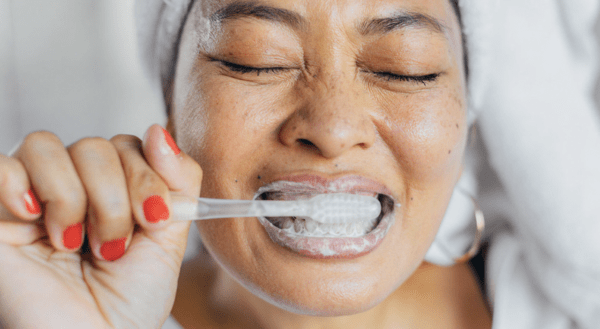
6 Mistakes You’re Making When Brushing Your Teeth – And Exactly How Long Should We Be Brushing For?

Brushing your teeth may just seem like another mundane task we have to do each day in the name of oral health – but did you know that there are certain things you should and shouldn’t be doing when brushing your teeth?
Here, Payal Bhalla, Lead Dentist and Clinical Director of Quest Dental reveals 6 mistakes you’re making when brushing your teeth. In addition to regular and proper brushing of teeth, it is important that you and your kids get dental cleaning services from an adults and kids dental office.
1. Brushing for too short a time
Brush for a minimum of two minutes, twice a day. This duration is crucial because it allows enough time to thoroughly clean all surfaces of your teeth, including hard-to-reach areas. Splitting the two minutes evenly between the upper and lower teeth, as well as focusing on the front, back, and chewing surfaces, ensures comprehensive cleaning. Using a gentle circular motion and reaching all areas, including the gumline, helps remove plaque, food particles, and bacteria effectively. It is important to note that two minutes is a general guideline, and some individuals may require more or less time depending on their specific oral health needs. Insufficient brushing time can leave behind harmful substances, increasing the risk of tooth decay, gum disease, and bad breath. Moreover, recommended duration allows the fluoride in toothpaste to have sufficient contact with your teeth, promoting remineralisation and strengthening of the enamel.
2. Ignoring the tongue
While brushing our teeth, it is crucial never to ignore the tongue. The tongue is a haven for bacteria, food particles, and dead cells, making it a potential breeding ground for bad breath and oral health issues. Neglecting the tongue during oral hygiene routines can allow these harmful substances to accumulate, leading to an unpleasant odor and an increased risk of dental problems. Bacteria on the tongue can contribute to plaque formation, tooth decay, and gum disease. Additionally, neglecting the tongue can hinder the full effectiveness of brushing as it leaves behind a significant source of oral bacteria. Including tongue cleaning as part of your oral hygiene routine by gently brushing or using a tongue scraper helps to remove the buildup of bacteria, promote fresh breath, and contribute to overall oral health and hygiene.
3. Brushing too hard
According to a Houston dentist, brushing your teeth is essential for maintaining good oral health, but brushing too hard can have negative consequences. When you brush your teeth vigorously or use excessive force, it can cause damage to your gums and tooth enamel. The enamel is the protective outer layer of your teeth, and if it wears away, it can lead to tooth sensitivity, cavities, and an increased risk of tooth decay. Aggressive brushing can also irritate and damage your gums, resulting in gum recession, gum sensitivity, and even gum disease. Additionally, brushing too hard does not necessarily mean you are cleaning your teeth more effectively. Using a gentle and circular motion with a soft-bristled toothbrush is recommended to effectively remove plaque and food particles without harming your teeth or gums. It’s important to strike the right balance by brushing your teeth thoroughly but gently to maintain optimal oral health.
4. Not changing your brush often enough
Regularly changing your toothbrush is crucial for maintaining good oral hygiene and preventing potential dangers. Failing to do so can lead to several risks. Over time, toothbrush bristles become frayed and less effective at removing plaque and food particles from your teeth and gums. This can result in the accumulation of bacteria, increasing the likelihood of tooth decay, gum disease, and bad breath. Additionally, an old toothbrush may harbor harmful bacteria and pathogens, posing a risk of infection or illness. It is recommended to replace your toothbrush every three to four months or sooner if the bristles become worn, ensuring optimal oral health and reducing potential hazards. If you have sensitive gums, you may ask your dentist for toothbrush recommendations.
5. Brushing your teeth in the same pattern
When brushing your teeth, there are some key motions and patterns recommended by dentists to ensure you are cleaning every area of the tooth and not missing spots. If you always brush your teeth in the same pattern every day, for example starting in the upper left and ending at the lower right then there’s a good chance your missing areas every day. To prevent this you should change up the pattern in which you brush your teeth. You may have to start focusing on your brushing, but this will ensure that the teeth are being cleaned properly and no areas are missing out.












































